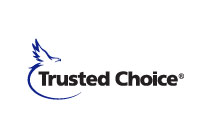
Call Now
- Washington Sheet Metal Work Shops Approved by the Web’s Leading Job Shop …
- OSHA cites Long Island, NY, Machine Shop for Failing to Correct Previously …
- Simtek facing $139K in fines from OSHA
- Texas Steel Fabrication Shops to Support The Buy American AMSN Movement
- Machining & Fabrication in Alaska: AMSN Helps Businesses in the Last Frontier …
- PA job shop Smucker adds Trumpf laser cutter
- Clark County at Work: Hi-Tech Metal Fabrication Inc.
- Washington Sheet Metal Work Shops Approved by the Web’s …
Watch Useful Tips on how to save money on Your Business and much more.
Q&A: Machining is family trait for Wilson – Press
There usually is not much margin for error for a manufacturer, but really none at all when the parts coming out of the factory are going into airplanes and helicopters.
Stacy Wilson responds to that kind of pressure every day. She is the president of MillworX Precision Machining, a Corona metal fabrication shop that shapes steel, aluminum and titanium into parts for civilian and military aircraft and space technology systems.
Boeing, Northrop Grumman and Bell Helicopter are a few of the companies on the Corona company’s customer list, and MillworX has held its own in the last few years despite some lean economic times.
Running a factory is part of a family heritage for Wilson, although it isn’t as simple as someone taking over from one’s parents. Her father, Terry Windust, ran T.L. Windust Machine, a Fontana business that produced metal aerospace parts for about 20 years before he sold the company in 2006. Her husband, Lowell Wilson, now MillworX’s vice president and manufacturing manager, worked for Windust.
Wilson graduated Cal Poly Pomona with a degree in human resources management, and for her senior project, she wrote the employee handbook for her father’s company. It was the first of a long string of business consulting work for her that included more HR handbooks, quality control guidelines and audits.
She started MillworX in 2003 in a building that was smaller than most private residences. It is now in a 15,000-square-foot factory on Malloy Court in Corona’s busy industrial area. Wilson oversees general operations, especially quality control and sales issues.
“”We’re still growing, although it has slowed,” Wilson said. “We outgrew this location in a year, but we’re making it work.”
Q: How do you survive as a manufacturer, especially in California?
A: It’s very hard to be in this industry, especially with so much work being done in China and Mexico. It’s so extremely competitive that we have to be very lean. We have to get our shop to put out product at a lower cost and be able to pass that along to customers.
Q: Do you have any regrets about having started your own factory?
A: I’d be lying if I said this was easy. It’s not. It’s not easy dealing with the constant cash flow issues. Having to put so much money out there and having to wait 90 days to see payment on it is probably the hardest struggle. It puts a lot of pressure on everyone. There’s always a lot of hard work to do and not a lot of time during which it can be done.
Q: There has to be extra pressure because there’s no room for mistakes for makers of aerospace parts. How do you deal with that?
A: Fortunately we haven’t had an instance where that’s been a problem, but it’s always an issue. To be a top-graded manufacturer you have to have a 100 percent performance record. If you’re making just simple widgets, some of the processes can be streamlined, but we don’t have that benefit. We make complicated parts every day that have to be touched by a lot of people.
Q: How do you keep your employees focused and make sure everyone’s morale is good?
A: We have weekly all-hands meetings. We let everyone in the shop know how we’re doing with the customers and whether all our expectations are being met. We try to keep an open-door policy, and we believe in incentives. We give gift cards to let then know we appreciate their work, and we have pizza when the goals are met. We pay for performance, and we try to let everyone know where we are and where we want to be within the industry.
Q: Is this the kind of work you’d like to see your own children doing?
A: You always want the best for your children. It’s not a bad family business to be in. This is a chance for a decent living, but it’s obviously very stressful. There’s something to be said about not having to worry about your livelihood. Basically, though, it will be their choice.
Q: How do you survive a recession as steep as the one we endured?
A: Fortunately we were able to stabilize the business. Sales in 2008 and 2009 were $5.4 million, and we made it up to $6 million in 2010. We basically have a seven-year business cycle planned, but we had to pull in the reins a little and ease off the growth pattern. That and not having all our eggs in one basket kept us out of trouble.
Q: What’s your best day like?
A: The best days are when I get everything on my task list done and when the customer is satisfied. I’m the person that has to talk to them, and relationships with customers are key. If you tell them there are no issues, they’re happy and you’re happy, too.
Stacy Wilson
Title: President
Age: 39
Company: MillworX Precision Machining
Location: Corona
Employees: 52
2010 sales: $6 million
Article source: http://www.pe.com/business/local-profiles-headlines/20111227-qa-machining-is-family-trait-for-wilson.ece
